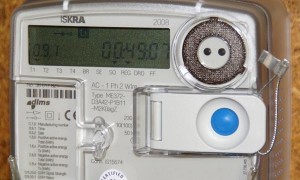The Department of Energy and Climate Change (DECC) set out the smart meter roll-out strategy yesterday.

In a press release published yesterday, The DECC has outlined the strategy and time scale for the introduction of smart meters in every UK home by 2019.
Starting in 2014, and taking 5 years to complete, 53 million smart meters are to be installed in over 30 million homes, costing an estimated £11 billion.
This is £2 billion more than the figure given in May 2009, when the plan was given the go-ahead, however The DECC expects the smart meter roll-out to have a benefit of £7.3 billion over the next 20 years.
Smart meters allow customers to see data on exactly how much electricity and gas they are using, helping to increase energy efficiency and save money. This information can be read remotely by your supplier, meaning there will be no need for estimated billing or staff employed to visit homes to read the meter.
It is clear that smart meters have the potential to be a very useful new technology in the energy industry, however home owners are going to have to pay higher bills to fund the roll-out, the DECC said.
It is estimated that suppliers will save around £11 billion from the benefits of not having to take meter readings, and having more accurate readings than on current meters. The suppliers should then pass on these savings to their customers.
The DECC has predicted this combined with increased energy efficiency in homes will end up saving the average consumer £23 per year on their energy bills by 2020.
